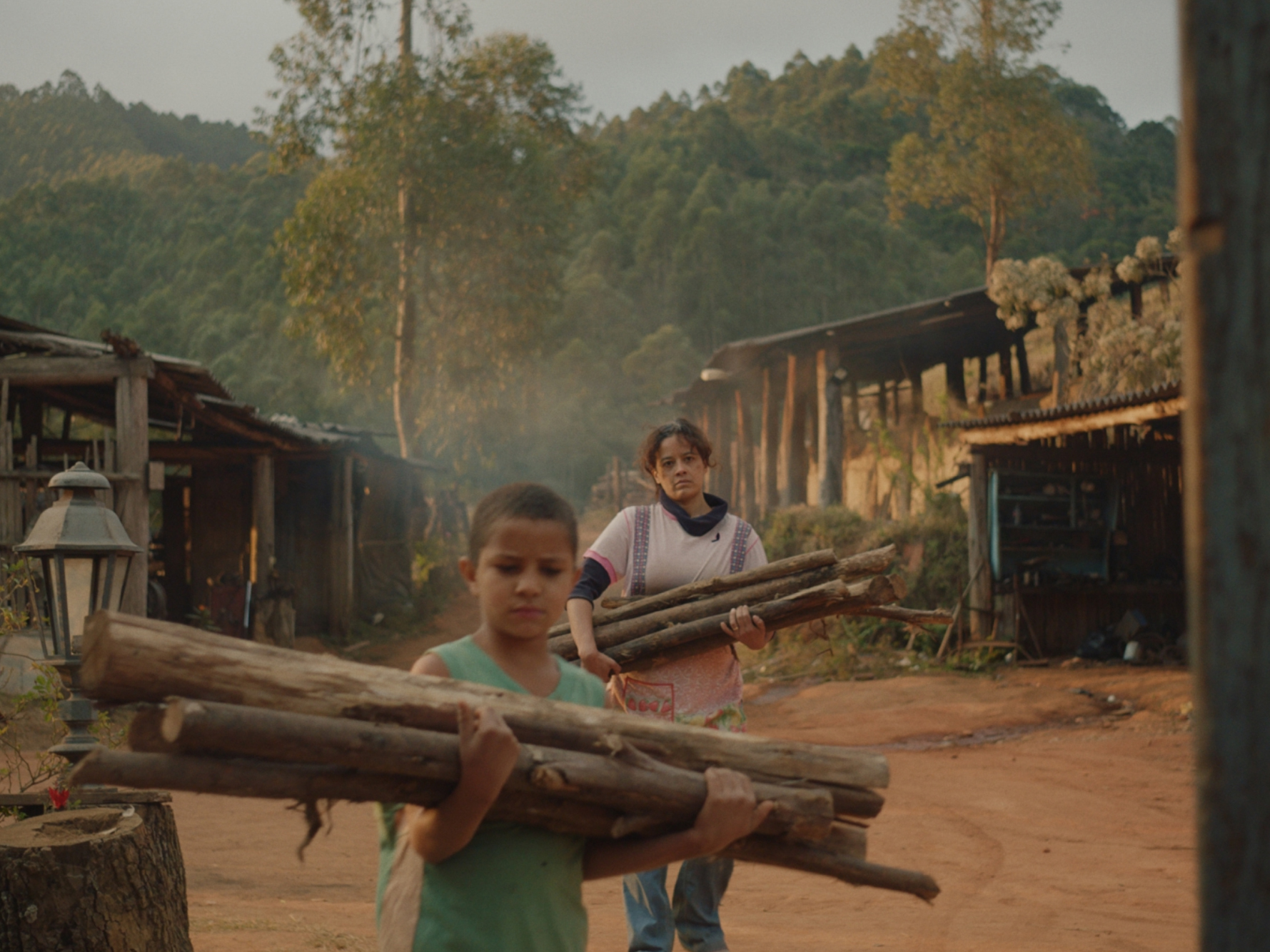
- Golden Globe Awards
Charcoal (Brazil)
Life is harsh in Charcoal, the feature debut of veteran Brazilian director of commercials Carolina Markowicz, which had its international premiere at the Toronto Film Festival this year and later won 3 awards at the Rio de Janeiro Film Festival, including Best Screenplay and Best Supporting Actress for Aline Marta Maia.
In the film, Irene, a middle-aged woman (Maeve Jinkins) carries on with a complicated life in a desolated rural area in Brazil. She is married to a man who secretly has a gay affair, takes care of an elderly father in a vegetative state and is also raising a young boy. The family is struggling financially, even if they make some side money with a charcoal furnace next door. But when a nurse (Marta) comes to check on the grandfather and offers the deal of their lives, Irene goes for it. She just needs to get rid of her father and bring an Argentine mafia boss on the run (Cesar Bordon) to take his place. Having a charcoal furnace next door is not difficult to make the exchange, but once the deal is done and the mafia boss is in the house, Irene realizes she (and her family) are in deep trouble, as he gets mad too easily and the communication with him is problematic.
In a long interview with GoldenGlobes.com, Markowicz explained how she got the idea for the film, a project in which she worked for 6 years: “I was raised in the countryside, and I lived many years there. And for me it was very weird how people had to perform a role that they often didn’t belong to, families were together even though they had nothing to do with one another and didn’t stand each other. People who were gay needed to pretend they were straight, even if everybody knew. I always wanted to do something about that”, she said.
Carolina, who regularly uses humor on her commercials, says it’s something that comes naturally to her: “it’s the way I see life, even in the most tragic moments. I am like that, so it’s more natural for me to tell stories this way. I was raised with this kind of humor as well, so it’s something that is part of my life and people that are around me, they are used to it”, she explained.
Even if Jinkins’ character is the heart of the film, the dynamic of the story changes when the mafia boss enters the scene. Spanish and Portuguese are similar languages grammatically, but they sound very different so a lot of the confusion in the story comes from that: “Bordon spoke Spanish and a bit of Portuguese when he wanted to be understood. When the character couldn’t care less because he was always patronizing that family, he would just speak Spanish, but they wouldn’t understand. The same went for the huge fights. We felt that it was working well as it was messy because of the language”, she revealed.